Although these requirements apply to European businesses, they directly impact suppliers, including Vietnam. Economic experts believe that proactive adaptation to these requirements will be the decisive factor for our businesses to maintain and expand their export markets to the EU in the coming time.
According to Deputy Secretary General and Head of the Legal Department of VCCI Dau Anh Tuan, the Law on the Obligation to Assess the Supply Chain of Enterprises of the Federal Republic of Germany and the Directive on the Assessment of the Sustainability of Enterprises of the EU will have an impact on Vietnamese enterprises. These are the most comprehensive and strict regulations on supply chain assessment ever issued in the world to date. Although we are not the direct subjects of the law, as suppliers of raw materials, manufacturers, logistics enterprises or transport units... we will force enterprises to comply with requirements on transparency, environmental responsibility and human rights if they want to maintain cooperative relationships with major partners in Europe.
Accordingly, refusing to provide information, failing to meet standards, or violating rules during the cooperation process can lead to serious consequences: being rejected for orders, being removed from the supply chain, or losing the opportunity to expand market share. Although businesses will be affected, Mr. Dau Anh Tuan said that currently, more than half of Vietnamese businesses are still not aware of this regulation:
A survey conducted by VCCI in July-August 2025 showed that up to 59.3% of businesses and organizations involved in export activities to the EU had never heard of these regulations, and an additional 36.6% had only heard of them but did not understand them specifically. This shows a huge gap between the policy changes taking place in Europe and the readiness of the Vietnamese business community.
According to the VCCI research team, data from the General Statistics Office shows that in the period 2015-2024, the EU market accounts for an average of 15.3% of Vietnam's total exports to the world. This is also a very potential market, so regulations that may affect imported goods from outside the EU in general and the EU's supply chain assessment laws in particular need to be followed by Vietnamese enterprises to meet the requirements when exporting goods to this region.
At the same time, it is said that textiles and footwear are two key export industries of our country to the European market, accounting for 20.8% of the total annual turnover of goods to the EU in the period 2015-2024. However, these two manufacturing sectors have extensive supply chains - which will be among the supply chains that will be heavily monitored in the process of enforcing the law on supply chain assessment of EU markets.
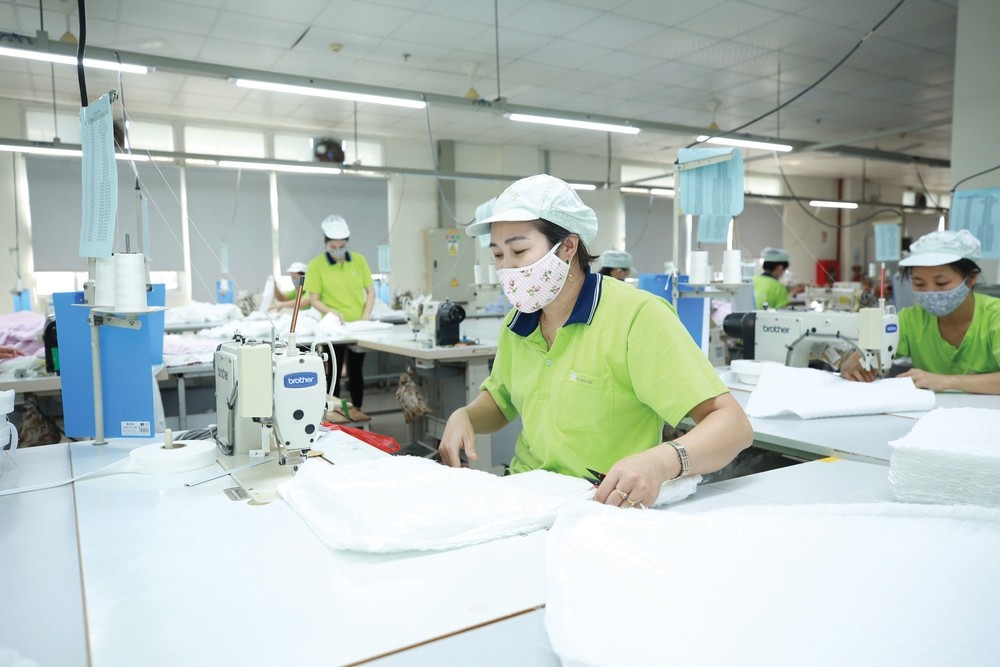
From EU's appraisal requirements: Businesses need to proactively adapt (illustrative photo)
In the field of operation, Ms. Phan Thi Thanh Xuan, Vice President and General Secretary of the Vietnam Leather, Footwear and Handbag Association, said that in recent years, the awareness of domestic enterprises has changed for the better. Previously, most factories were passive, doing whatever customers asked, and were less proactive in learning and updating. Now, many enterprises have been more proactive in self-assessment, participating in certification programs, and independent auditing to improve their capacity and reputation. However, for small and medium-sized enterprises, this is really a big challenge. Many units do not have enough resources to build a team to comply with and meet international standards.
Ms. Phan Thi Thanh Xuan suggested: We need to make more efforts in cooperation with the EU, because they do not just stop at assessing the supply chain. Many new EU laws are being considered, especially strongly impacting the textile and footwear industries - areas that are often in the "target" of environmental and labor standards. This is a huge challenge for small and medium enterprises, especially those that are preparing to export but lack the resources to build a compliance department and update regulations. Therefore, there needs to be a specific support strategy to help this business sector adapt effectively.
In response to the European market's demand for supply chain assessment, Mr. Hoang Manh Cam, Chief of Office of the Vietnam Textile and Garment Group (Vinatex), suggested that the State should upgrade national technical standards according to international practices, creating a common set of standards for businesses to implement. European partners currently require very detailed documents on the origin of raw materials, working conditions and environmental treatment. Initially, businesses may encounter difficulties because they have to invest in quality management systems and standard certification. However, when they meet these requirements well, they will be highly appreciated and sign more long-term contracts. The initial cost of compliance may be large, but it is an investment in sustainable development. If businesses consider this a burden, they will falter. If they consider it an opportunity to upgrade their management, they will be more resilient in the face of global fluctuations.
Mr. Hoang Manh Cam stated: "Complying with and meeting the requirements of the import market is a vital factor for businesses. Whether a business is large or small, each unit needs to be clearly aware of its responsibilities and livelihood, proactively learn and participate in training programs to have more information and appropriate solutions in customer relations."
According to Ms. Vanessa Steinmwtz - Director of FNF Institute in Vietnam, supporting businesses to promptly grasp new regulations in the global supply chain and proactively prepare for the application of the set rules and regulations will contribute significantly to shaping Vietnam's export strategy to Europe in the coming time.
For many businesses, meeting the European market’s supply chain audit requirements will be challenging. However, at its core, it is about building trust – trust between manufacturers, suppliers and consumers. For Vietnam, this will open up new opportunities, so Vietnamese businesses need to demonstrate transparency, responsibility and good governance to become stronger and more competitive in the international market.
Economic experts also recommended that businesses and associations should proactively improve their supply chain assessment capacity, especially for the European market. Vietnamese businesses must strictly comply with domestic laws, especially on labor and environment, and proactively coordinate with European partners, thoroughly understand requirements and clearly define responsibilities in implementation. Associations should include support for supply chain assessment in their regular plans, creating a channel for continuous consultation and support for businesses.
In addition, State management agencies on labor, environment, production, export and international trade need to support businesses in assessing and warning of risks of violating standards as well as carrying out certification and accreditation according to their authority to meet the requirements of European partners.
Source: https://baolaocai.vn/tu-yeu-cau-tham-dinh-cua-eu-doanh-nghiep-can-chu-dong-thich-ung-post886457.html









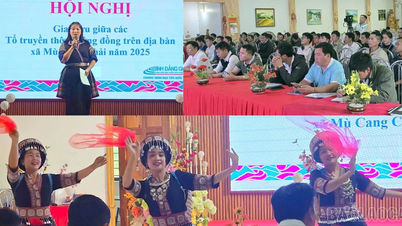
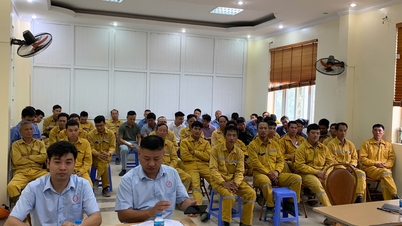

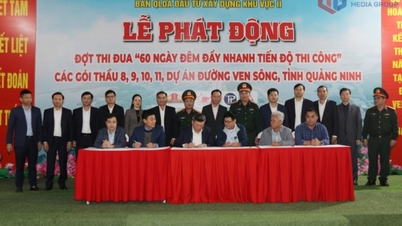



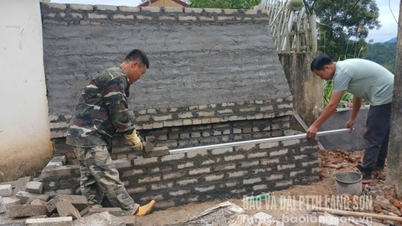






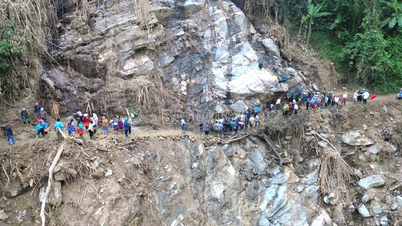
















































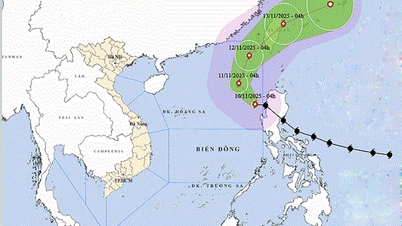






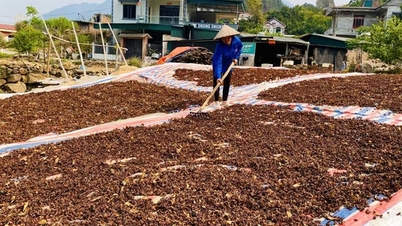
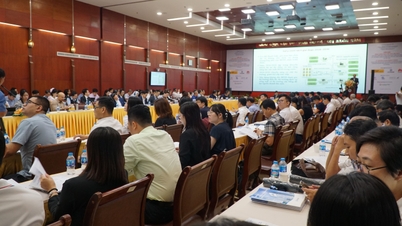






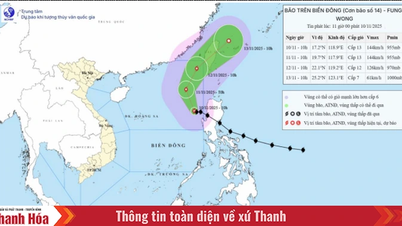




![Dong Nai OCOP transition: [Article 3] Linking tourism with OCOP product consumption](https://vphoto.vietnam.vn/thumb/402x226/vietnam/resource/IMAGE/2025/11/10/1762739199309_1324-2740-7_n-162543_981.jpeg)













Comment (0)